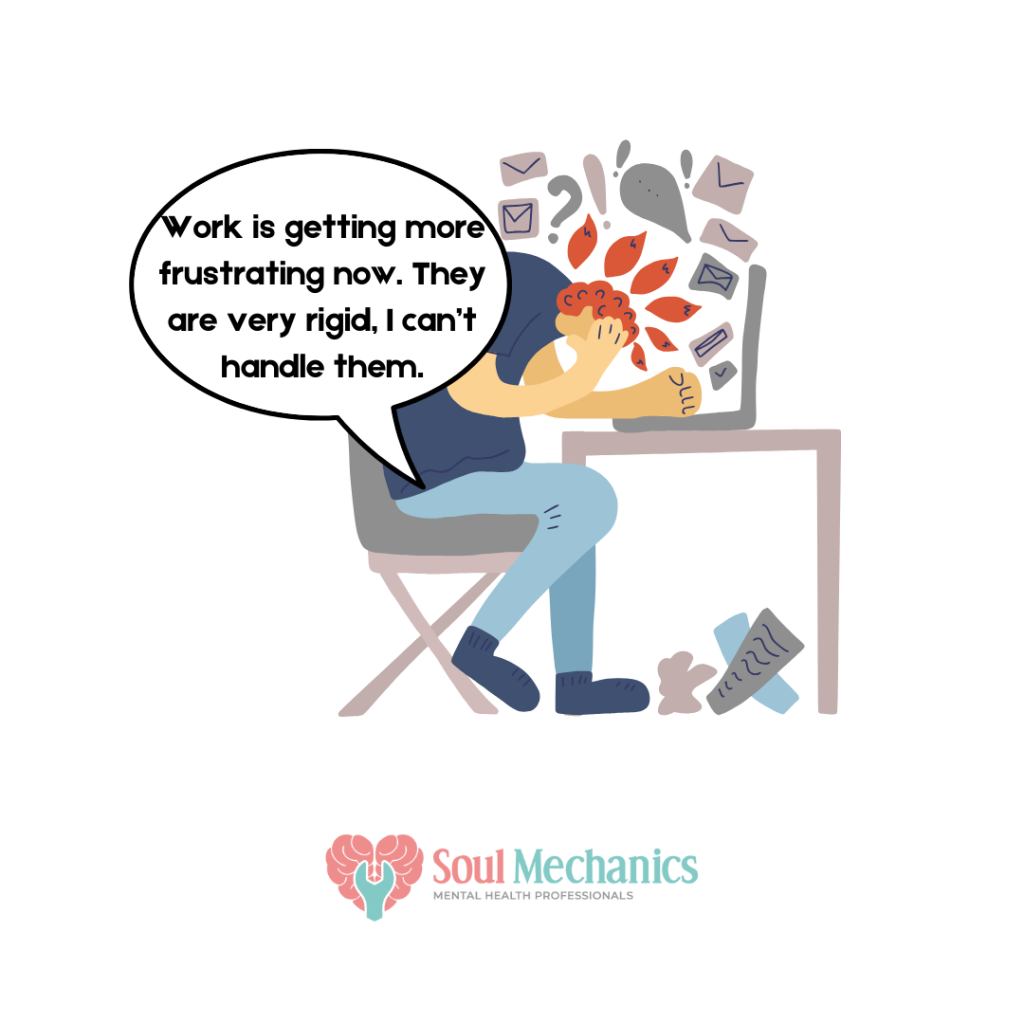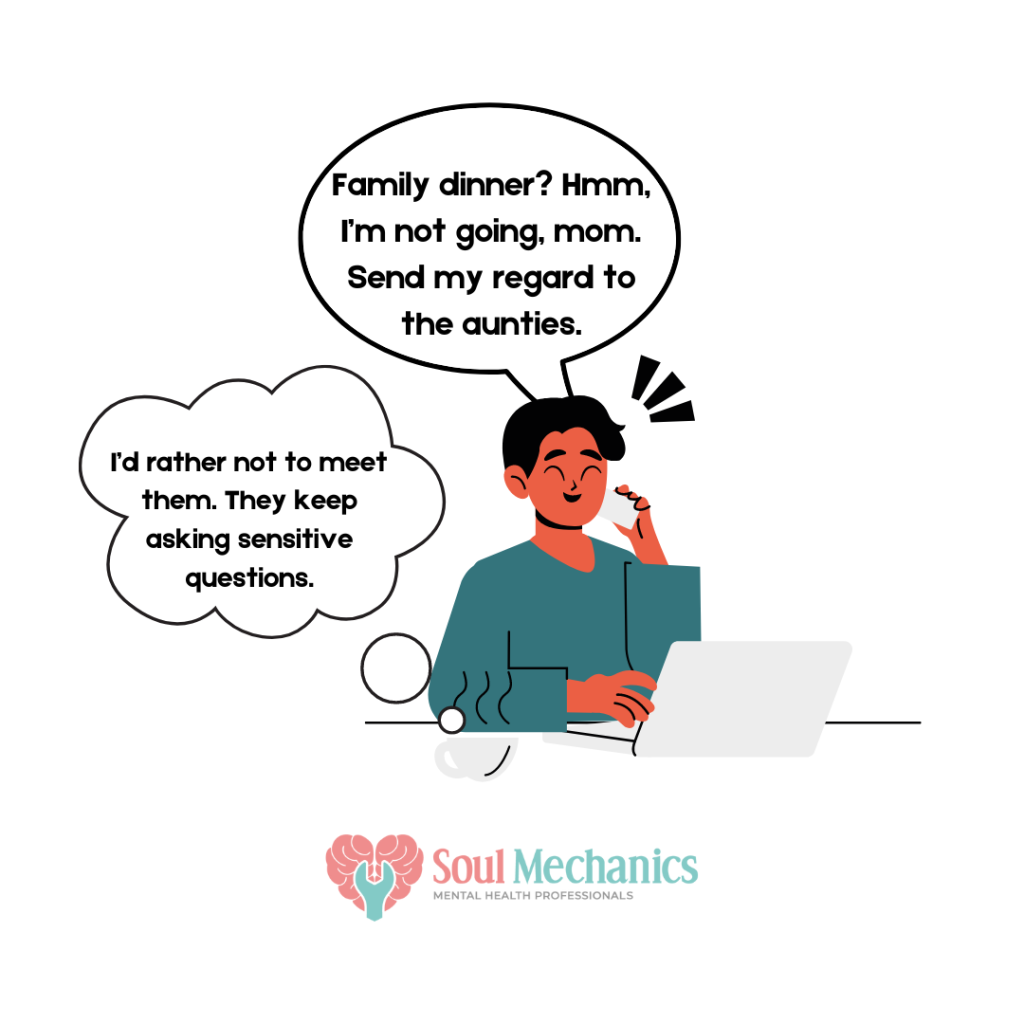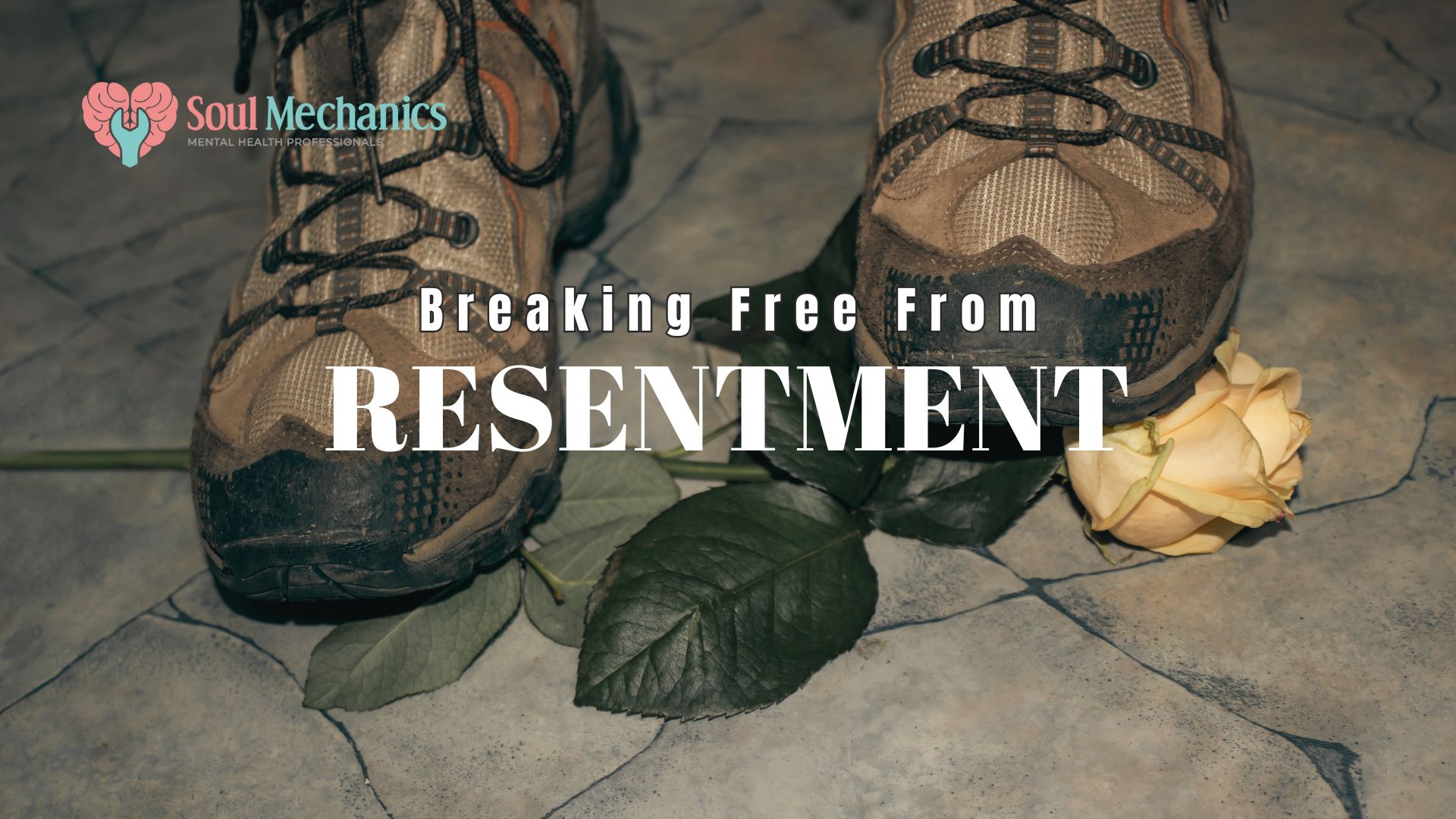Breaking Free from Resentment
Breaking Free from Resentment

Written By: Kelly Chan Jia Li, Clinical Psychologist (MAHPC(CP)00353)

Resentment is an emotion we have all experienced at some point in life. It can be triggered by various situations, such as feeling wronged or mistreated by others. Holding onto resentment over time can harm your well-being and damage relationships. If left unchecked, it can make you feel stuck in a cycle of anger and bitterness. But resentment does not have to control us. So, how do we deal with resentment in a healthy way?
What is Resentment?
Resentment is the anger, frustration, or bitterness that builds up when we feel someone has wronged us, either intentionally or unintentionally. It can stem from a single incident or repeated behaviours that hurt us over time. The tricky thing about resentment is that while it may seem justified, holding on to it can cause more harm to us than to the person we resent. It can build over time, especially when the underlying issues are not addressed. The more we dwell on it, the more powerful and overwhelming the feelings can become.

What Does Resentment Look Like?

At work
For example, you might feel resentful toward a colleague who took credit for your work.
In Relationships
For example, resentment might build up if you feel like you are always the one making sacrifices while your partner does not seem to notice or appreciate it.
In Friendships
For example, you might feel hurt if a friend consistently cancels plans or does not seem to make an effort to maintain the friendship.
Why Do We Feel Resentment?
Unfair Treatment
You might feel like someone is taking advantage of you or not treating you with respect.
Unmet Needs or Expectations
When someone consistently does not meet your emotional, physical, or practical needs.

Lack of Communication
Not expressing your feelings or needs to your partner or loved ones leads to unresolved tensions.
Difficulty in Forgiving
Holding on to past hurts or refusing to let go of grudges.
How Can Resentment Affect Us?
Resentment is like carrying a heavy backpack full of negative emotions. The longer you carry it, the more it weighs you down.
Emotional Drain
Constantly feeling angry or bitter can exhaust you emotionally. It can also make it harder to experience joy and peace in your daily life.

Relationship Strain
Resentment can create a wall between you and the other person. Over time, it might lead to communication breakdowns, passive-aggressive behaviours, or conflicts. It becomes harder to feel close, trust, or communicate openly.
Physical and Mental Health Issues
Resentment can even affect your physical and mental health. Studies have shown that long-term stress and negative emotions can lead to issues such as weakened immune systems and insomnia. Resentment also can cause stress, anxiety, and even depression. The more we dwell on negative feelings, the more our mental health suffers.
What are the Signs You May Be Holding onto Resentment?
Reliving Past Events
If you find yourself frequently thinking about past grievances or replaying conversations in your head, this might indicate unresolved resentment.

Avoidance
You might begin avoiding the person who has wronged you, whether it is consciously or unconsciously. This could look like declining invites or ignoring their messages.
Passive-Aggressive Behavior
Sarcasm, backhanded compliments, or doing things out of spite are all forms of passive-aggressive behaviours that may be a sign of resentment.
Loss of Trust
Resentment can slowly destroy the trust in your relationships. You might feel like you cannot rely on the person anymore, and their actions may constantly irritate you.
How to Deal with Resentment?
Acknowledge Your Emotions
The first step in dealing with resentment is to recognize and acknowledge it. Often, we suppress negative feelings or downplay them, thinking it is no big deal. However, ignoring resentment can make it worse. Take time to reflect on your emotions and acknowledge that you are upset. Sit with your feelings for a moment. Ask yourself: “Why am I feeling this way? What is the root cause of my resentment?”
Example: If you have been feeling neglected by your partner, sit with that feeling and acknowledge that “I feel unappreciated because they do not seem to notice the effort I am putting in.”
Understand the Root Cause
Try to explore deeper into the root cause of your resentment. What specifically made you feel this way? Understanding the why behind your emotions helps you get a clearer picture of the issue at hand. Often, resentment is not just about one isolated event but a pattern of behaviour that builds up over time.
Example: Maybe you are resentful at work because your boss keeps assigning you extra tasks, but the real issue is that you feel your hard work is being overlooked and you are not receiving recognition.

Communicate Your Feelings

Once you have identified the root cause, consider having an open and honest conversation with the person involved. Holding it in will only make the resentment fester. Approach the conversation calmly and focus on how their actions have made you feel rather than attacking them. Instead of blaming or accusing, use “I” statements to express your feelings.
Example: Instead of saying, “You never help me around the house,” try expressing, “I feel overwhelmed with the amount of work I am doing at home, and I would appreciate your help.”
Set Boundaries
Sometimes, resentment arises because we did not set clear boundaries. It is essential to set limits if you feel like people are taking advantage of your time, effort, or kindness. Boundaries can help prevent future resentment by clarifying what behaviour is acceptable and what is not. Let others know what you can and cannot do, and be firm about sticking to those boundaries.
Example: If you feel like you have been taken advantage of by a friend who always cancels plans at the last minute, you could say, “I understand things come up, but I need more consistency in our plans. If you cannot commit, let’s reschedule earlier next time.”
Practice Forgiveness
Forgiveness does not mean forgetting or excusing the other person’s behaviour. Instead, it is about freeing yourself from the emotional burden of holding onto resentment. Forgiveness is for you, not for them. Letting go of resentment can bring you peace and allow you to move forward.
Example: You might say to yourself, “I forgive them for their actions, even if they do not apologize because I deserve to feel peace.”
Focus on Gratitude
Resentment often blinds us to the positive aspects of our relationships and lives. Gratitude can be a powerful antidote to resentment. Shifting our focus from what’s wrong to what’s going well changes our mindset.
Example: Instead of dwelling on the fact that your spouse did not thank you for cooking, focus on the good things they do, like being supportive in other areas of the relationship.
Seek Professional Help
If resentment has built up over a long period or feels too overwhelming to handle on your own, seeking help from a mental health professional can be beneficial. They can help you process your emotions, guide you in addressing unresolved conflicts, and teach you healthy ways to cope with difficult feelings.
Reminder: If you and your partner are struggling in the relationship, please don't hesitate to reach out to us at Soul Mechanics KD or Soul Mechanics Ipoh. Remember, seeking help is not a sign of weakness but strength!
Dealing with resentment is one thing, but how to prevent it from building up again?
Communicate Regularly
Make it a habit to check in with those closest to you and express your feelings before they escalate.
Set Boundaries Early
Do not wait until resentment has built up to set limits. Be proactive in managing your time, energy, and emotional investment.

Practice Self-Care
Sometimes, resentment stems from burnout or overextending yourself. Prioritize your needs and make time for activities that recharge you.
Let Go of Unrealistic Expectations
Understand that we are not perfect, and things would not always go as planned. Adjusting your expectations can reduce feelings of disappointment or frustration.

Resentment in a Nutshell
Resentment is a heavy emotion to carry, but it is not something you have to hold onto forever. By acknowledging your feelings, understanding the root cause, communicating openly, and practising forgiveness, you can let go of the heavy burden of resentment. Remember, resentment can be a sign that something needs to change, whether in your relationship or communication style. The key is to handle it in a healthy way so that it does not weigh you down in the long run.
If you enjoyed reading this, why not broaden the horizon of knowledge by learning about "Emotional Freedom: The Art of Letting Go"? You can read the blog here.
For more content related to mental health do follow us on our official Instagram.

